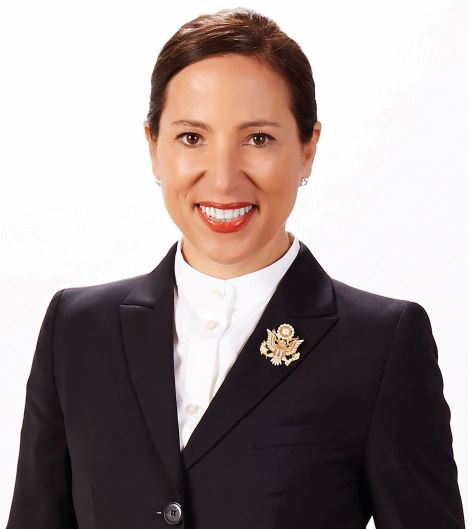(Editor’s Note: This interview first appeared in the spring 2019 issue of California Schools magazine)
Sworn in Jan. 7, 2019, as the first woman elected Lieutenant Governor in California history, Eleni Kounalakis will look to play a key role in helping the state better connect its early, K-12 and higher education systems. As Lieutenant Governor, Kounalakis sits on the California State University Board of Trustees and University of California Board of Regents. She recently finished a statewide “listening tour” of public universities across the state.
President Barack Obama appointed Kounalakis as United States Ambassador to Hungary in 2010. She also comes to the Capitol with experience in early childhood education and disabilities, serving both on California’s First 5 Commission and the California Blue Ribbon Commission on Autism.
California Schools talked with Kounalakis about her passion for education, diplomatic experience overseas and her historic campaign victory.
Q: In your inaugural address, you called education an issue that is very personal to you. Can you expand on the transformative role public education has played in your life and how that has shaped your views?
Public education changed the trajectory of my family’s story. My immigrant father worked his way through Sacramento State on a waiter’s salary, paying $62 a semester including books. The education he received helped him start and run our family business and provided my siblings and me opportunities that we could not have dreamed of. Access to public education was instrumental for my family, and I firmly believe that every student in this state deserves a high-quality education. There is no doubt in my mind that education is the key to our state’s future.
Q: What do you see as the purpose of public education and what role should the state play in facilitating that purpose?
I believe that every student in this state deserves a high-quality education. Public education provided immense opportunities for my family and I believe that every student should have the same. Californians understand that talent can come from anywhere, and as a result, it is critical that we throw open the doors of education in our state so that all of our students have the same opportunities to succeed.
Q: What do you see as the biggest challenges facing California’s K-12 public education system and its 6.2 million students?
We must fully fund education in this state. I believe Proposition 98 is a floor, not a ceiling when it comes to funding our public schools. We all know the statistics. California ranks 41st in the nation per pupil spending. California leads the nation in so many ways, but when it comes to per-pupil spending, we’re failing.
Q: Considering your new role as a UC regent and CSU trustee, what efforts can be made to better align K-12 with higher education? What partnerships are possible?
I am very excited by Governor Newsom’s budget proposal that includes a record $80.7 billion in K-12 funding as well as his proposal to create a statewide database linking student information from early-education programs to post-secondary education and into the workforce.
California is one of the few remaining states that does not have such a database in place. This system would provide critical data on student achievement, education reforms and efforts. I believe our universities will be much better equipped to prepare our kids for a changing workforce with these kinds of tools.
Q: You served on the First 5 California Commission — what do you see as the ideal relationship between early childhood education and K-12?
I am proud to have been an early supporter and financial backer of Proposition 10, which created California’s First 5 program for early childhood education and to have served on the First 5 Commission. I know from that experience how important early education is to success later in school. I believe very strongly that California needs to significantly increase its commitment to public education, and that includes a commitment to providing quality educational opportunities for students before they enter kindergarten — and it should not have to come at the expense of K-12 funding.
Gov. Newsom’s budget proposal to create a statewide database to track critical information about our students will be key in bridging a closer and more efficient connection between early childhood education and K-12 education. I am excited that Gov. Newsom’s budget proposal helps to address the lack of funding for early childhood education by proposing an additional $1.8 billion. In order to prepare our kids for higher education and the workforce, education must start at the beginning.
Q: You also served on the California Blue Ribbon Commission on Autism. What did you learn from that experience and how can we better support students with disabilities?
The California Blue Ribbon on Autism was created to help advise the Legislature on policies to address the dramatic increase in the number of children diagnosed as being on the autism spectrum. I was moved and inspired by public testimony from parents trying to provide answers, and support, for their children. What was clear to me then was that parents, and children, need the support of government programs to help them deal with the challenge of autism. That is another reason why I strongly support Gov. Newsom’s proposed budget, which includes spending $576 million more for special education. We must ensure that all of our students have the tools and resources they need to succeed in school.
Q: What does it mean to you to be the state’s first woman elected Lieutenant Governor? Congratulations on that distinction.
I am truly honored to be the first woman elected Lieutenant Governor in the history of California. I believe that I have a unique platform to fight for gender parity in leadership — government, business, education, health and other fields — and increase security for women. This includes protecting women from sexual harassment and ensuring economic security. It also means addressing key issues affecting women in the workplace — including childcare, preschool for all, paid family leave, reproductive freedom and affordable, quality health care for all.
Q: What lessons did you learn as the U.S. Ambassador to Hungary from 2010–13? Did you gain any insights about education in the States?
It was an honor and privilege to serve my country as U.S. Ambassador to Hungary under President Obama from 2010 to 2013. The work of American diplomats is very important, and often goes unrecognized. Our administration advanced the policies of smart power — highlighting diplomacy, defense and development as a way to advance American interests and values in the world. During my posting, I had the opportunity to visit our men and women in uniform in Afghanistan and the Balkans and have great respect for our military. Our engagement in Hungary during my time there was largely focused on the government’s reform process, which we believed would weaken democratic institutions and checks and balances. Sadly, the situation continues to be very challenging.
This experience reinforced for me the importance of education in upholding our democracies and how critical it is that all of our citizens have the tools and resources they need to be engaged. It also emphasized how cultural exchange programs like the Fulbright can enrich and help develop a global outlook for our students.





